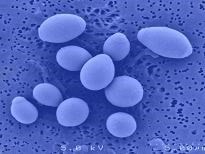Probiotics Show Autism Health Benefit
A new study1 published in the Journal of Probiotics & Health suggests that probiotic supplementation may have a beneficial effect on digestive issues associated with autism.

The study, carried out by Pure Research Products LLC, and led by John Sichel, involved 25 participants who were supplemented daily with a probiotic formula containing strains of L. acidophilus, L. casei, L. delbruecki, B. longum, and B. bifidum, for a period of 42 days.
Throughout the trial period the participants’ digestive symptoms and ATEC (autism treatment evaluation checklist) scores were tracked and measured by parents and caregivers. ATEC scores are used to evaluate autism severity through four categories: (1) speech/language/communication; (2) sociability; (3) sensory/cognitive awareness; and (4) health/physical/behaviour. These scores were taken before the trial commenced to achieve a baseline score, and then throughout the trial to track any changes.
The results revealed that the probiotic formula had a significant beneficial effect on digestive conditions, with participants showing a 48% improvement in diarrhoea and a 52% improvement in constipation. ATEC scores were also dramatically decreased, with participants showing an overall decrease of 88%.
"Lead researcher John Sichel, commented; “With autism rates rising dramatically in recent years, there is an ever-increasing need to identify remedies for common issues among children with ASD. Nutritional supplements may be well-positioned to help with the commonly reported gastrointestinal problems among children with ASD. According to the findings in this study, the probiotic formulation holds promise as a potential remedy for children with ASD and GI dysfunction or abnormal stool testing.”
Most recently, scientists have studied faecal samples from 1627 children with & without autism, comparing microbiome composition and metabolite profiles of the children2. It was found that a pattern of microbes and metabolic pathways were consistently altered in autistic children. Researchers used used this pattern as a diagnostic model and were able to correctly identify children with autism just from stool samples in 82% of cases.
Find out more about probiotics and autism in the Probiotics Learning Lab.
References
- Sichel, J. et al (2013) Improvements in Gastrointestinal Symptoms among Children with Autism Spectrum Disorder receiving the Delpro Probiotic and Immunomodulator Formulation. Journal of Probiotics & Health.
- Su, Q. et al (2024) Multikingdom and functional gut microbiota markers for autism spectrum disorder. Nat Microbiol 9, 2344–2355. https://doi.org/10.1038/s41564-024-01739-1
Popular Articles
View all Mental Health articles-
Mental Health13 Feb 2024


